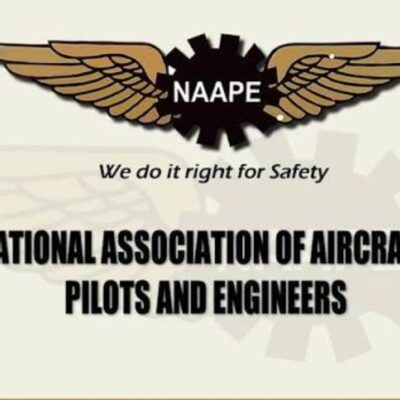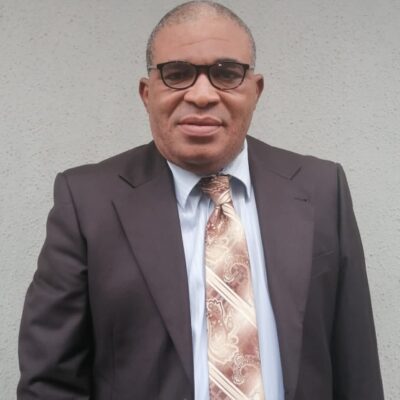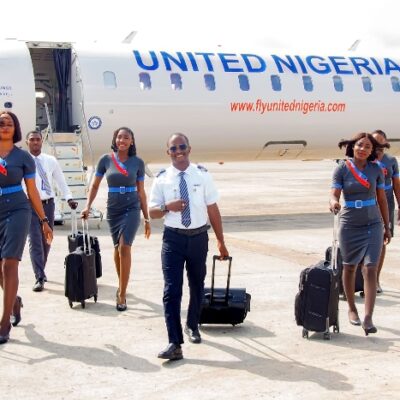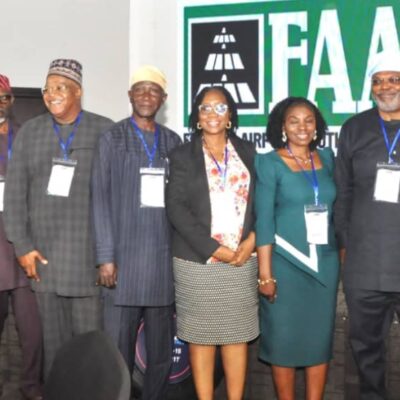
BY OLAPEJU OLUBI
Air Peace Chairman and Chief Executive Officer, Allen Onyema, says Nigeria is on the verge of a new dawn in aviation following key agreements with Brazil that promise to expand bilateral air services, deepen economic cooperation and position Nigeria as a strategic hub linking Africa and South America.
Speaking after a series of high-level engagements in Brazil attended by President Bola Ahmed Tinubu and Brazilian President Luiz Inácio Lula da Silva, Onyema described the outcome as “a game-changer for Nigeria’s aviation industry and economy at large.”
Both presidents, he explained, endorsed the Bilateral Air Services Agreement (BASA) between the two nations under the Enhanced Partnership for Intra-South (EPIS), clearing the way for direct flights, trade and investment flows.
“I was very glad that Al-Ghassan al-Kazim al-Jais aligned to implement the BASA. Both countries endorsed EPIS to implement this BASA because they believed that we could do it,” Onyema said.
He emphasized that this new phase of cooperation will be “a symbiotic collaboration, not a parasitic or bullish one,” stressing that Nigeria has long sought partnerships that respect sovereignty while yielding mutual benefits.
For Onyema, Brazil is not just a large market but also a nation with deep cultural and historical connections to Africa.
“Brazil has a huge population of Africans in the diaspora. Our Yoruba brothers are there, many of them speaking Yoruba though they have never been to Nigeria. The similarities between Brazil and Nigeria are striking, and the potentials are enormous,” he explained.
He added that Air Peace is not only looking to serve Brazil but intends to use the route as a gateway to the wider South American continent.
Colombia, he revealed, has already reached out to explore similar opportunities.
Air Peace’s longstanding relationship with Brazilian aircraft manufacturer Embraer forms another pillar of this new cooperation.
The airline has placed firm orders for 21 aircraft—five E-175s and sixteen E-2 jets—with five already delivered.
In addition, Onyema disclosed plans to inaugurate a state-of-the-art maintenance hangar for Embraer aircraft in Lagos on September 17.
“The facility, expected to be completed within 12 to 15 months, will transform Nigeria into a regional hub for Embraer’s maintenance, repair and overhaul services.
“We are no longer going to take our jets abroad for heavy checks. Instead, other countries will come here,” Onyema said proudly.
He was effusive in his praise for President Bola Tinubu, whose support he credited for the breakthroughs witnessed in Brazil.
“President Tinubu does not see me as an Igbo man. He sees me as a Nigerian entrepreneur contributing to our nation’s success.
“He has shown me so much love and support, and that was evident in Brazil, where he personally endorsed Air Peace alongside President Lula,” Onyema noted.
Such presidential recognition, he argued, has helped strengthen confidence in Nigeria among foreign partners, while sending a powerful signal that the country is open for business.
The need for direct connectivity was underscored by Onyema’s own travel experience.
“There were no direct flights. I had to travel alone with my staff, and I hit Brazil in seven hours. Meanwhile, our ministers were traveling around the world and arrived two days later. This gap shows exactly why direct connectivity is critical,” he explained.
Air Peace plans to begin direct Lagos–São Paulo services in the last quarter of 2025, a development Onyema described as a matter of national pride that will redefine Nigeria’s position in South-South aviation.
Drawing on Air Peace’s achievements elsewhere, Onyema pointed to the London route as proof of what competition can deliver for Nigerian travelers.
“Before Air Peace came on board, business class fares for a six-hour London flight were hitting ₦15–16 million. We came with ₦4 million. Within 24 hours, several foreign airlines began losing passengers as Nigerians switched.
Some cancelled their tickets and used the refund to buy two Air Peace tickets for family members,” he recounted.
He argued that this disruption is not just about Air Peace but about forcing fairer fares across the industry.
“Even if you don’t want to fly Air Peace, fly other airlines at the right fare. Not the outrageous ones they imposed before we entered the market,” he said.
Within just a year of its entry, Air Peace now controls over 30 percent of the London market and is preparing to launch Abuja–Heathrow and Abuja–Gatwick routes.
Although he declined to name specific carriers, Onyema confirmed that Air Peace is already in talks with Brazilian airlines under non-disclosure agreements to establish interline partnerships.
“Definitely, it’s going to happen. The government will support it. What happened in Brazil is unbelievable—it’s not just about aviation. The Brazilians are eager for technology exchange and ready to help Nigeria in many ways,” he said.
Beyond aviation, Onyema cast the agreements as part of a wider economic renewal that will create jobs, expand opportunities for Nigerian youth, and enhance the country’s standing in international trade.
“With this partnership, we are not only opening routes; we are opening opportunities for employment, foreign exchange earnings, and regional influence,” he explained.
While speculation swirls about a possible October 7 launch of the Brazil service, Onyema dismissed any fixed date, clarifying that operations would begin in the last quarter of the year.
“I would never announce any date. What I can say is that operations will begin in the last quarter of this year. We are going back to Brazil soon to finalize details. The excitement in Brazil is overwhelming—everybody, even government agencies, believe in us,” he said.
For Onyema, Air Peace’s expansion is not a personal triumph but a national one. “It’s not about me.
It’s about our nation. I am happy for Nigeria and Nigerians. Air Peace is just a tool. The real story is about a country stepping up to claim its rightful place in global aviation,” he declared.
Olapeju is a journalist and aviation reporter.





